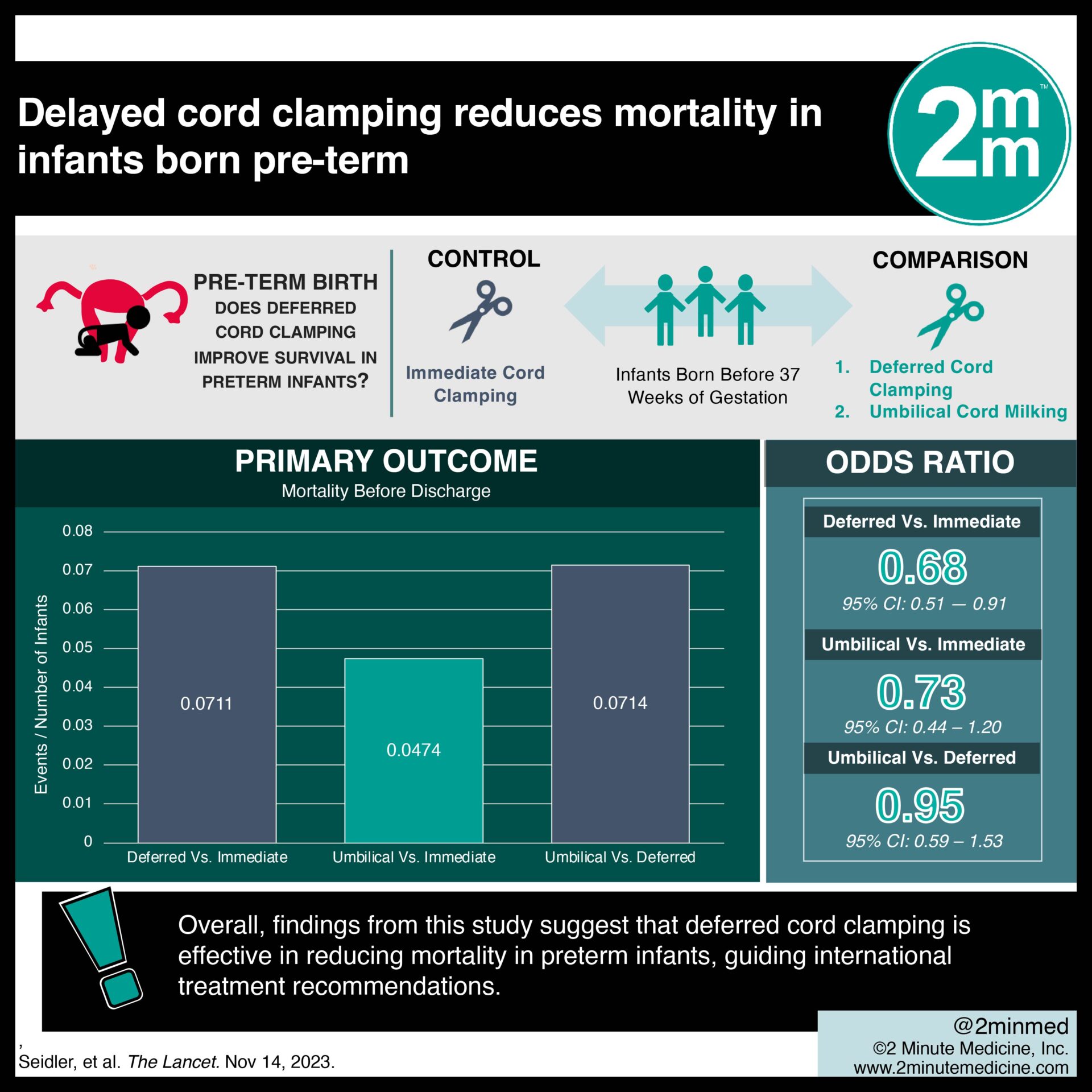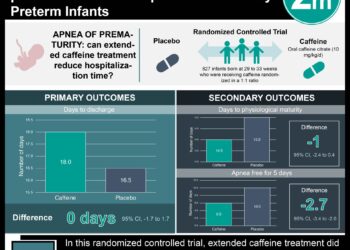#VisualAbstract: Delayed cord clamping reduces mortality in infants born pre-term
 1. Deferred (delayed) cord clamping significantly reduced mortality before discharge compared to immediate cord clamping.
1. Deferred (delayed) cord clamping significantly reduced mortality before discharge compared to immediate cord clamping.
2. Umbilical cord milking was not statistically different from immediate or deferred cord clamping.
Evidence Rating Level: 1 (Excellent)
Study Rundown: Umbilical cord clamping methods in preterm births can impact postnatal health outcomes. This systematic review and meta-analysis aimed to compare deferred cord clamping, umbilical cord milking, and immediate cord clamping for neonatal mortality and morbidity among infants with preterm births. The primary outcome was death before hospital discharge, while key secondary outcomes included the need for blood transfusion and hypothermia on admission. According to study results, deferred cord clamping significantly reduced mortality before discharge compared to immediate cord clamping. This study was limited by data analysis from randomized controlled trials which may introduce heterogeneity and potentially influence the generalizability of findings.
Click to read the study in The Lancet
In-depth [systematic review and meta-analysis]: 2369 records were identified from database inception to Feb 24, 2022. Included were randomized controlled trials comparing deferred cord clamping, umbilical cord milking, and immediate cord clamping among infants with preterm births. Altogether, 48 trials provided individual participant data on 6367 infants, with high-certainty evidence showing deferred cord clamping reduced mortality before discharge compared to immediate cord clamping (n=3260, odds ratio [OR] 0.68, 95% confidence interval [CI] 0.51–0.91). For umbilical cord milking, no clear evidence of a difference in mortality before discharge was found compared to immediate cord clamping (n=1561, OR 0.73, 95% CI 0.44–1.20), or deferred cord clamping (n=1303, OR 0.95, 95% CI 0.59–1.53), both with low certainty. Overall, findings from this study suggest that deferred cord clamping is effective in reducing mortality in preterm infants, guiding international treatment recommendations.
©2024 2 Minute Medicine, Inc. All rights reserved. No works may be reproduced without expressed written consent from 2 Minute Medicine, Inc. Inquire about licensing here. No article should be construed as medical advice and is not intended as such by the authors or by 2 Minute Medicine, Inc.







